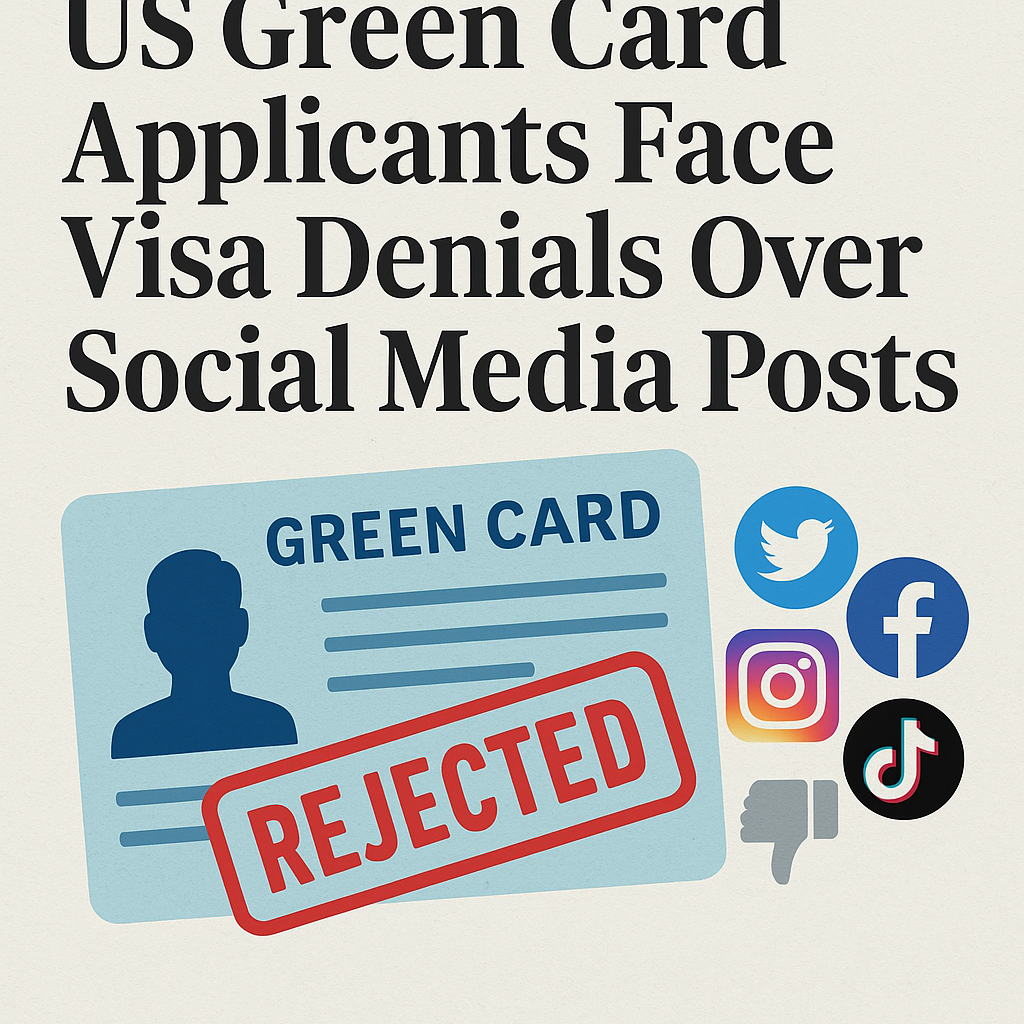
In a time when emojis speak louder than diplomats and hashtags often reach borders before people do, the United States—the land that once gave sanctuary to free thought—has quietly redrawn the immigration map. Not with new fences or policies on paper, but with filters—social media filters, to be precise.
The latest policy shift from U.S. immigration authorities suggests that your right to enter America may depend less on your passport and more on your digital persona. Tweets, reels, posts, comments—even that regrettable Snapchat selfie from 2017—are now fair game for scrutiny. If your online history so much as hints at anti-Semitism, political dissent, or ideological nonconformity, your visa dreams might be dashed before you finish saying “Zuckerberg.”
This policy, which reads like George Orwell co-writing an Instagram terms-of-service agreement, identifies anti-Semitic speech on social media as a “negative factor” in determining eligibility for visas or permanent residency. According to the United States Citizenship and Immigration Services (USCIS), even indirect support for individuals or organizations deemed anti-Semitic could be grounds for denial. Your digital footprint, it seems, is now the new biometric, and the algorithm might just be your next immigration officer.
As with all acts of administrative overreach, the rationale arrives dressed in the noble robes of moral vigilance and national security. Homeland Security Secretary Kristi Noem put it bluntly: “Anyone who thinks they can promote hate and still get a visa doesn’t understand American values.” Which, strictly speaking, is accurate—since promoting hate appears to be the exclusive preserve of domestic political campaigns, not aspiring immigrants.
The irony is almost poetic. The same nation that reveres the First Amendment as constitutional gospel is now filtering freedom of expression through a moral sieve. It’s like inviting people to a potluck dinner and then denying them entry based on the menu they brought to last year’s gathering. Welcome to the land of liberty—as long as your posts don’t offend the algorithm.
The most public example fueling this policy is that of Mahmoud Khalil, a Columbia University student who joined protests against Israel’s military action in Gaza. For this offense—not of violence, but of protest—his student visa was revoked, and he now finds himself unofficially blacklisted from American soil. Meanwhile, war criminals in expensive suits continue to travel freely—as long as they don’t tweet.
Supporters of the policy argue, not without reason, that the U.S. has every sovereign right to decide who enters its borders. That’s true. But critics—typically those guided by principles rather than popularity—warn that today’s clampdown on “anti-Semitic content” could easily morph into tomorrow’s censorship of dissent, satire, or even innocent memes about aging politicians.
It’s essential to understand that this policy applies exclusively to non-citizens. American citizens are still free to post, protest, and parrot conspiracy theories to their hearts’ content. But if you’re a foreign national—especially if you check the boxes of being brown, bearded, or boldly opinionated—consider your social media history a legal liability.
Where does it end? Will future visa interviews include TikTok audits? Will consular officers base decisions on your “likes,” “shares,” or political hashtags? Could tweeting “Free Palestine” get you a complimentary one-way ticket home, complete with a DHS seal of disapproval?
In this brave new digital reality, your passport photo may soon matter less than your profile picture. Your visa status could hang on how many times you've typed the word “resistance,” or who you tagged in your stories. Orwell warned us of the Thought Police. We just didn’t expect them to be dressed in bureaucratic suits, working nine-to-five, and scrolling through our timelines—albeit with none of the flair of an influencer and even worse lighting.

